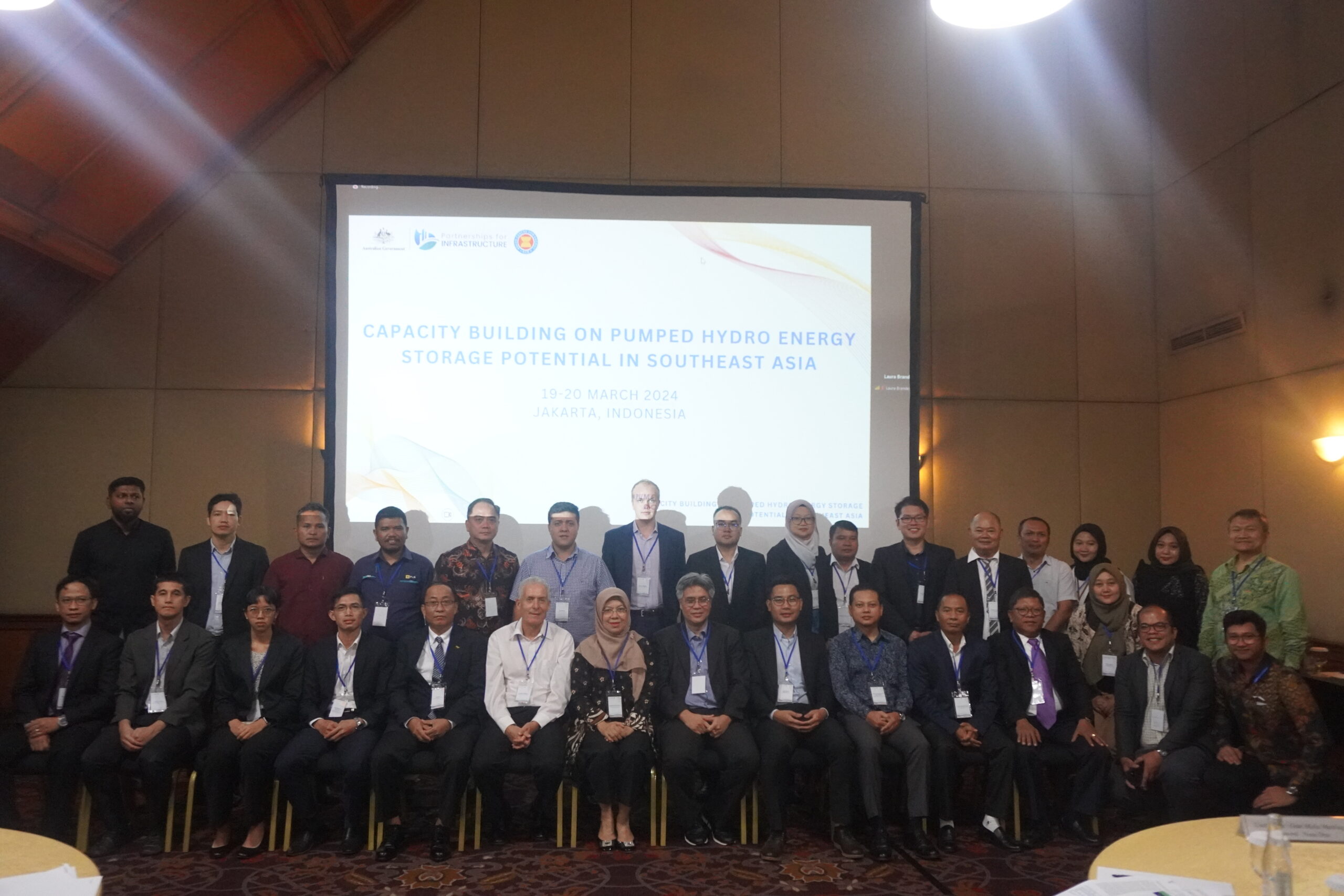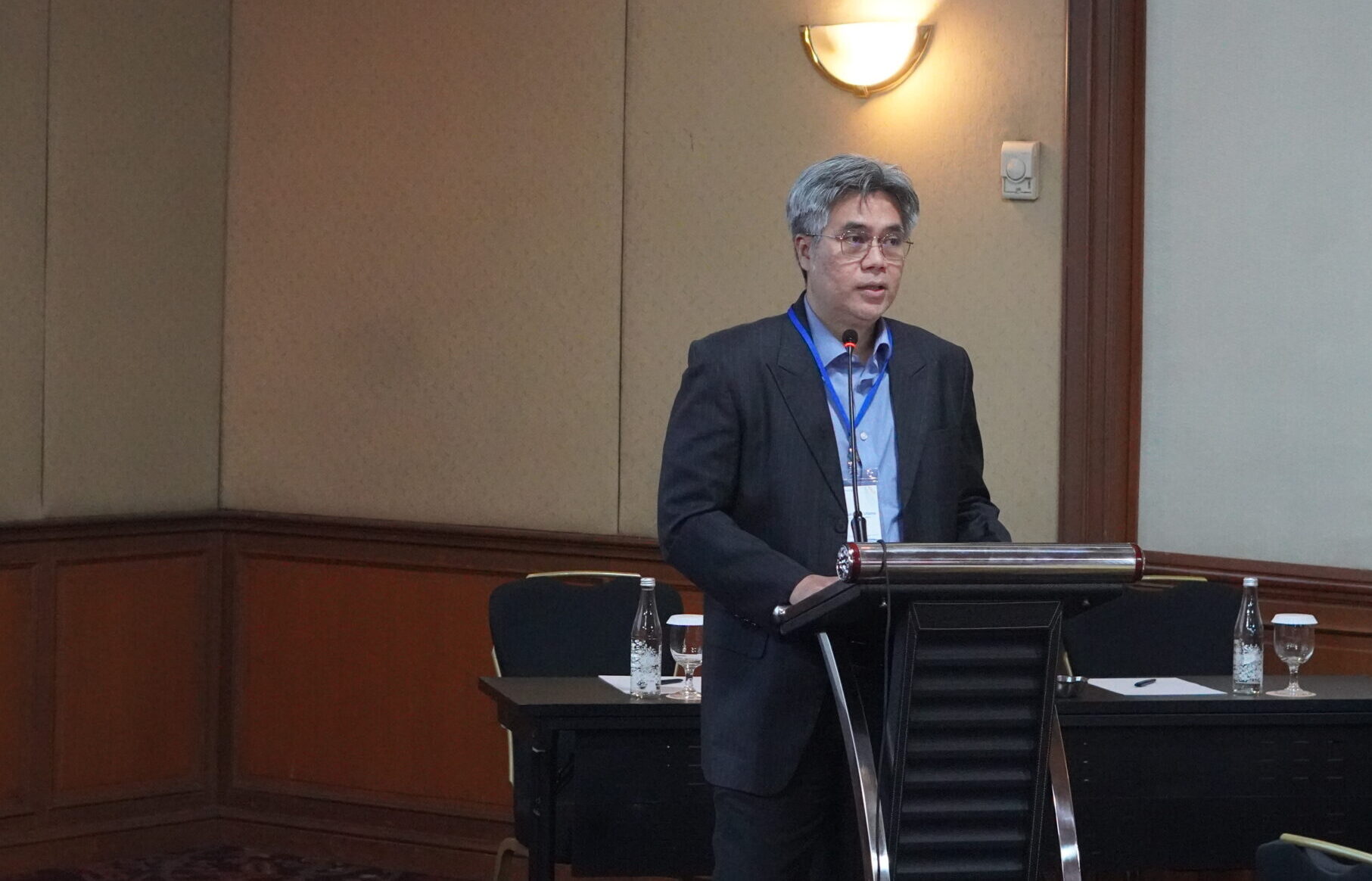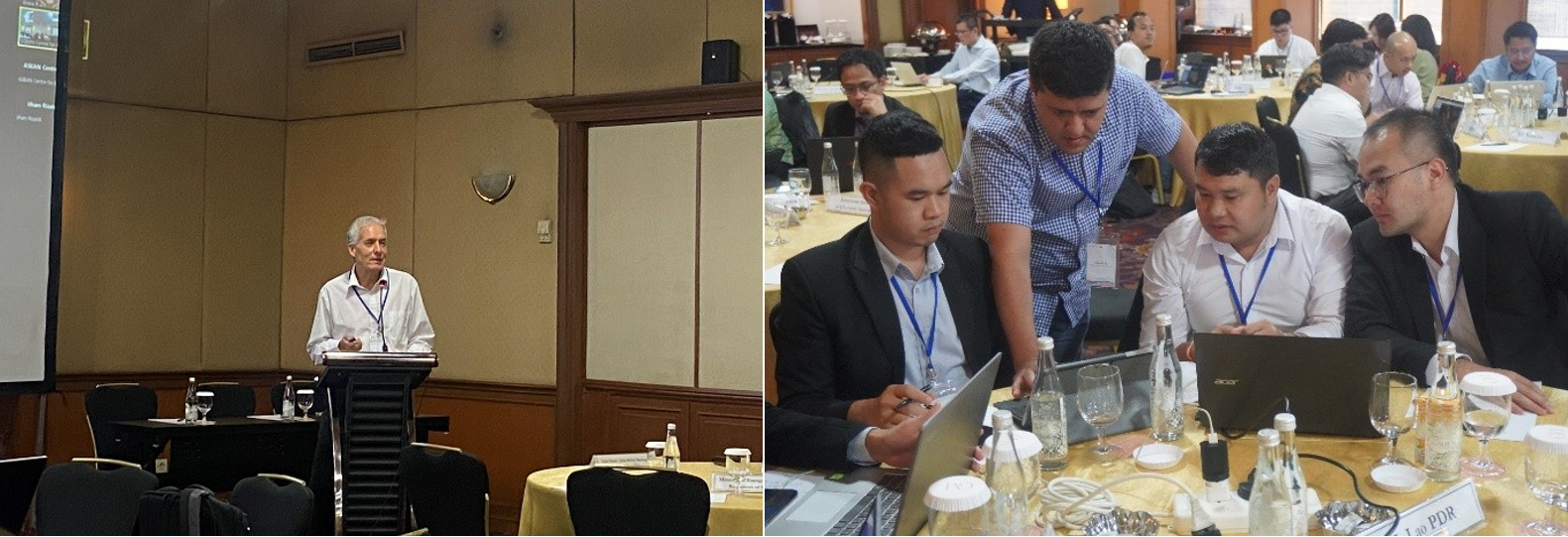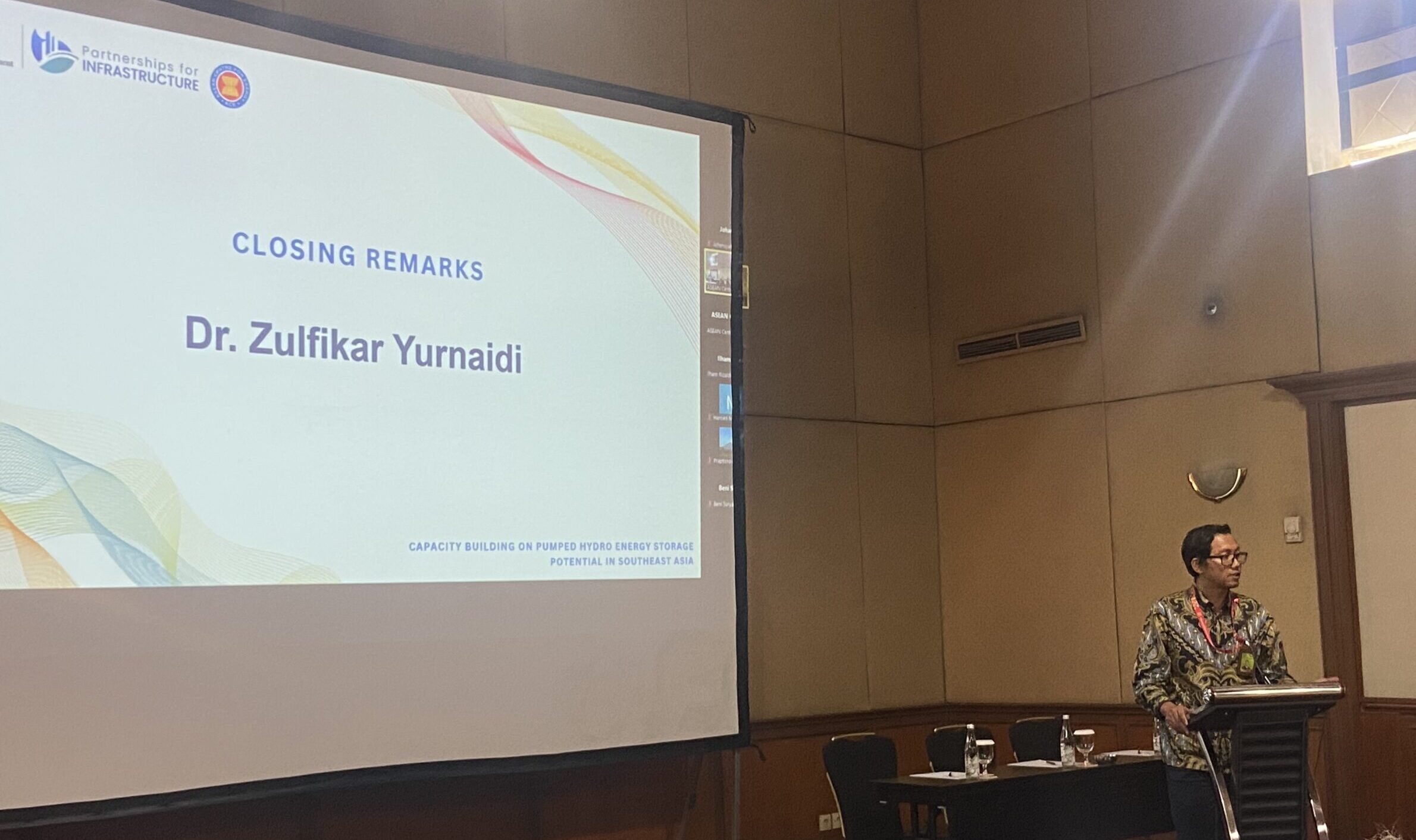Menu

The ASEAN Centre for Energy (ACE) and the Australian National University (ANU), with support from the Australian Government through the Partnerships for Infrastructure (P4I) initiative, hosted the capacity-building workshop on ASEAN’s Pumped Hydro Energy Storage (PHES) potential on 19-20 March 2024.
Held in Jakarta, Indonesia, the two-day workshop targeted policymakers from ASEAN Member States (AMS). These policymakers were represented by delegates from the ASEAN Renewable Energy Sub-Sector Network (RE-SSN). Additionally, the workshop extended invitations to representatives from Public Power Utilities of each country, nominated by the Heads of ASEAN Power Utilities/Authorities (HAPUA) Working Group 5. To foster broader accessibility and knowledge dissemination, limited public participation was also facilitated during the workshop.

Photo 1. Opening remarks by Dr. Nuki Agya Utama, Executive Director of ACE
The workshop commenced with welcoming remarks from distinguished figures. Andriah Feby Misna, Director of Various New and Renewable Energy at the Directorate General of New, Renewable Energy, and Energy Conservation, Ministry of Energy and Mineral Resources (MEMR) of Indonesia, expressed gratitude and expectations for the workshop’s outcomes. Laura Brandes, First Secretary at the Australian Mission to ASEAN, Department of Foreign Affairs and Trade of Australia, also delivered welcoming remarks. Dr. Nuki Agya Utama, Executive Director of ACE, provided welcoming remarks, extending sincere gratitude to all participants for the attentive commitment, and encouraged the participants to deepen their understanding of PHES and its potential to shape the future of energy in Southeast Asia.
The first session aimed to enhance participants’ understanding of future energy trends, which began with an overview of the renewable energy project trends in the power sector and renewable energy long-term vision in ASEAN, introduced by Zahrah Zafira, Associate Research Analyst of Sustainable and Renewable Energy (SRE) at ACE. Rika Safrina, Senior Analyst of Energy Modelling and Policy Planning (MPP) at ACE, provided a brief projection on Renewable Energy (RE) in the ASEAN Energy Outlook (AEO). Akbar Dwi Wahyono, Officer of Power, Fossil Fuel, Alternative Energy and Storage (PFS) at ACE discussed the integration of the RE variable into the ASEAN Power Grid (APG). Additionally, Prof. Andrew Blakers, Professor of Engineering at the ANU, delivered insights into the global energy transition and the rising usage of solar and wind as energy resources.
Following that, Prof. Andrew Blakers and Harry Thawley from ANU delved into a discussion on the future energy landscape for both Australia and ASEAN, identifying the anticipated energy storage requirements in ASEAN as well as examining the energy landscapes of each ASEAN Member State (AMS). Prof. Andrew Blakers and Harry Thawley also presented the best practices and lessons learned from Australia’s policies and strategies that could be adapted to align with each AMS’ circumstances within the region. Furthermore, discussions afterwards aimed to explore opportunities for cooperation among AMS to maximise the collaboration towards the potential of regional renewable energy resources, exploring cross-border energy trading and grid interconnection.

Photo 2. Interactive session on identifying potential PHES sites in ASEAN
The first day’s workshop concluded with an interactive session on identifying potential PHES sites in ASEAN. Moderated by Muhammad Ilham Rizaldi, Research Analyst of SRE at ACE, this session featured presentations by Prof. Andrew Blakers, Harry Thawley, David Silalahi, and Shahid Ali from ANU, who introduced the concept of PHES and demonstrated utilisation of PHES Atlas made by ANU aimed for PHES site identification. Participants actively engaged in the session using their own laptops, collaborating to identify potential sites across ASEAN countries.
The following day started with a presentation on the complementary aspects of solar and hydroelectricity, as well as the implications of solar, wind, and PHES for the ASEAN Power Grid by Harry Thawley. Harry Thawley presented various types of storages and several methods based on the specific needs for each AMS. Discussion followed, moderated by Monika Merdekawati, Research Analyst of SRE at ACE, emphasising the importance of accelerating regional collaboration through facilitating knowledge sharing, technology transfer, and standardised technical assessments. This collaborative effort aimed to enhance energy independence and reliability by implementing high-quality PHES installations throughout the ASEAN region.

Photo 3. Discussion on Pumped Storage Power Plant
Following discussions on AMS concerns regarding the installation of PHES, Shahid Ali facilitated the showcase of Australian and ASEAN PHES Project Development. Zainal Arifin, Executive Vice President of Renewable Energy of Perusahaan Listrik Negara (PLN), also provided updates on the Upper Cisokan Pumped Storage Power Plant in Indonesia, allowing other participants to enhance their insights on the land acquisition, permits, and long-term planning for the project in Indonesia.
The final session focused on exploring PHES Bankability and Financial Models for ASEAN, presented by Prof. Andrew Blakers, and highlighted the current use of renewable energy as one of the primary energy resources in Australia and emphasised the profitability of solar energy in ASEAN countries. Subsequently, the presentation transitioned into a collaborative sharing session on Solar Photovoltaic (PV) policies and regulations in each AMS and strategies to maximise the benefits of PHES in the ASEAN context.

Photo 4. Closing remarks by Dr. Zulfikar Yurnaidi, Manager of ACE
The two-day workshop ended with Zahra Zafira, Associate Research Analyst of SRE at ACE, delivering key takeaways, followed by reflections and observations from David Silalahi of ANU. Zulfikar Yurnaidi, Manager of ACE, concluded the workshop with closing remarks, emphasising the need to push solar and wind energy development and assess the interconnection and storage needs in order to proceed implementing PHES in ASEAN.
